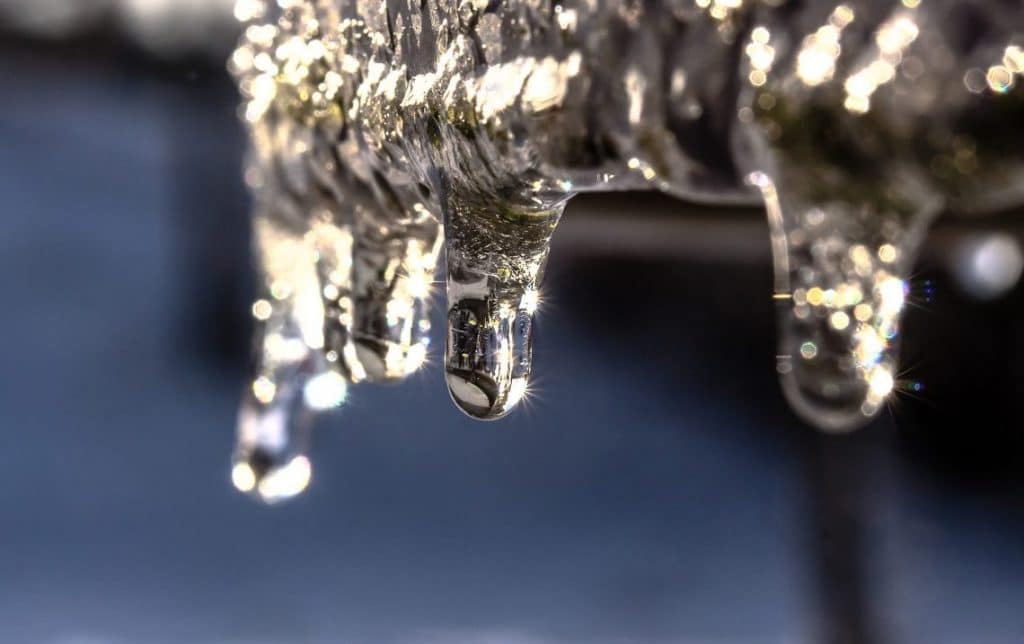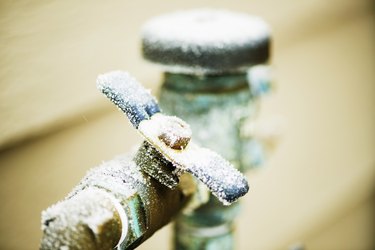Avoiding Frozen Pipes in Winter: Professional Advice
Avoiding Frozen Pipes in Winter: Professional Advice
Blog Article
We've stumbled on this article involving 6 Ways to Prevent Frozen Pipes directly below on the internet and concluded it made perfect sense to quickly share it with you on my blog.

Winter can damage your plumbing, especially by freezing pipes. Here's how to stop it from occurring and what to do if it does.
Intro
As temperature levels decrease, the risk of icy pipes increases, potentially leading to pricey repair services and water damage. Recognizing how to stop frozen pipelines is essential for homeowners in chilly environments.
Recognizing Frozen Pipes
What triggers pipes to freeze?
Pipes ice up when exposed to temperature levels below 32 ° F (0 ° C) for prolonged durations. As water inside the pipes ices up, it expands, putting pressure on the pipe walls and potentially causing them to burst.
Threats and problems
Icy pipelines can lead to water supply disruptions, home damage, and expensive repair work. Burst pipes can flooding homes and create extensive structural damage.
Indicators of Frozen Pipes
Recognizing frozen pipes early can stop them from bursting.
Exactly how to determine frozen pipelines
Seek lowered water circulation from faucets, unusual smells or sounds from pipes, and noticeable frost on revealed pipes.
Prevention Tips
Insulating at risk pipelines
Wrap pipelines in insulation sleeves or utilize warm tape to protect them from freezing temperature levels. Concentrate on pipes in unheated or exterior locations of the home.
Home heating techniques
Maintain interior rooms adequately heated up, especially locations with plumbing. Open up cupboard doors to permit warm air to flow around pipelines under sinks.
Protecting Outdoor Pipes
Garden hose pipes and exterior taps
Separate and drain pipes garden hose pipes before winter season. Install frost-proof spigots or cover outside faucets with insulated caps.
What to Do If Your Pipes Freeze
Immediate actions to take
If you think icy pipes, keep faucets open up to soothe pressure as the ice melts. Use a hairdryer or towels taken in hot water to thaw pipelines slowly.
Long-Term Solutions
Structural adjustments
Consider rerouting pipelines far from exterior walls or unheated areas. Add extra insulation to attics, basements, and crawl spaces.
Updating insulation
Invest in high-grade insulation for pipelines, attics, and walls. Correct insulation assists preserve consistent temperature levels and minimizes the risk of icy pipes.
Conclusion
Preventing icy pipelines requires positive measures and quick feedbacks. By comprehending the causes, indicators, and preventive measures, homeowners can secure their pipes during winter.
Helpful Tips to Prevent Frozen Pipes this Winter
UNDERSTANDING THE BASICS: WHY PIPES FREEZE AND WHY IT’S A PROBLEM
Water freezing inside pipes is common during the winter months, but understanding why pipes freeze, and the potential problems it can cause is crucial in preventing such incidents. This section will delve into the basics of why pipes freeze and the associated problems that may arise.
THE SCIENCE BEHIND FROZEN PIPES
When water reaches freezing temperatures, it undergoes a physical transformation and solidifies into ice. This expansion of water as it freezes is the primary reason pipes can burst. As the water inside the pipe freezes, it expands, creating immense pressure on the walls. If the pressure becomes too great, the pipe can crack or rupture, leading to leaks and water damage.
FACTORS THAT CONTRIBUTE TO PIPE FREEZING
Low Temperatures: Extremely cold weather, especially below freezing, increases the risk of pipes freezing. Uninsulated or Poorly Insulated Pipes: Pipes located in unheated areas, such as basements, crawl spaces, or attics, are more prone to freezing. Insufficient insulation or lack of insulation altogether exacerbates the problem. Exterior Wall Exposure: Pipes running along exterior walls are susceptible to freezing as they encounter colder temperatures outside. Lack of Heating or Temperature Regulation: Inadequate heating or inconsistent temperature control in your home can contribute to frozen pipes. PROBLEMS CAUSED BY FROZEN PIPES
- Pipe Bursting: As mentioned earlier, the expansion of water as it freezes can cause pipes to burst, resulting in significant water damage.
- Water Damage: When pipes burst, it can lead to flooding and water damage to your property, including walls, ceilings, flooring, and personal belongings.
- Structural Damage: Prolonged exposure to water from burst pipes can compromise the structural integrity of your home, leading to costly repairs.
- Mold and Mildew Growth: Excess moisture from water damage can create a favorable environment for mold and mildew growth, posing health risks to occupants.
- Disrupted Water Supply: Frozen pipes can also result in a complete or partial loss of water supply until the issue is resolved.
WHY CERTAIN PIPES ARE MORE PRONE TO FREEZING
- Location: Pipes located in unheated or poorly insulated areas, such as basements, crawl spaces, attics, or exterior walls, are at higher risk of freezing.
- Exterior Pipes: Outdoor pipes, such as those used for irrigation or exposed plumbing, are particularly vulnerable to freezing as they are directly exposed to the elements.
- Supply Lines: Pipes that carry water from the main water supply into your home, including the main water line, are critical to protect as freezing in these lines can affect your entire plumbing system.
- Underground Pipes: Pipes buried underground, such as those connected to sprinkler systems or outdoor faucets, can be susceptible to freezing if not properly insulated.
https://busybusy.com/blog/helpful-tips-to-prevent-frozen-pipes-this-winter/

I hope you enjoyed reading our section about Winter Plumbing Precautions: Preventing Frozen Pipes. Thank you so much for taking a few minutes to read our blog. In case you enjoyed reading our article please be sure to share it. Thanks for taking the time to read it.
Book An Estimate Now Report this page